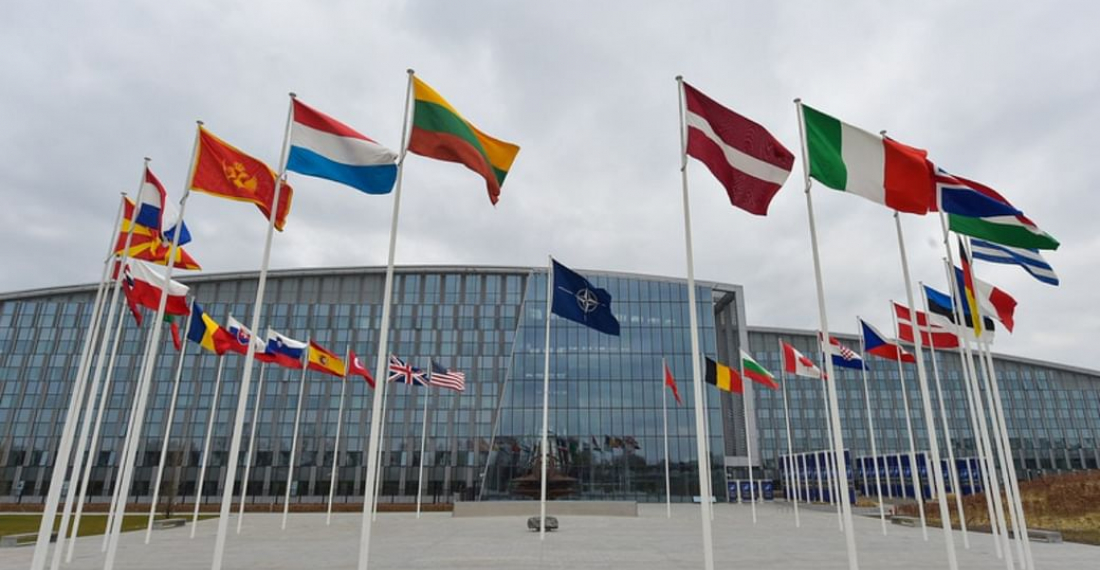NATO, the European Union and the G7 are holding leaders summits in Brussels on Thursday to decide on further measures in response to continued Russian aggression in Ukraine.
It is now a month since Russia launched its unprovoked invasion of Ukraine. The world continues to witness the heroic resistance of the Ukrainian people, who have united to repel the invader.
US president Joe Biden arrived in Brussels on Wednesday to participate in the three summits, which will bring together the leaders of the 30 NATO member-states, the 27 member states of the European Union and the seven leaders of the G7 countries.
At the NATO summit it is expected that the leaders agree the deployment of considerable amount of troops to Eastern Europe in response to perceived Russian threats.
source: commonspace.eu
photo: Flags of NATO member states outside the headquarters of the alliance in Brussels







